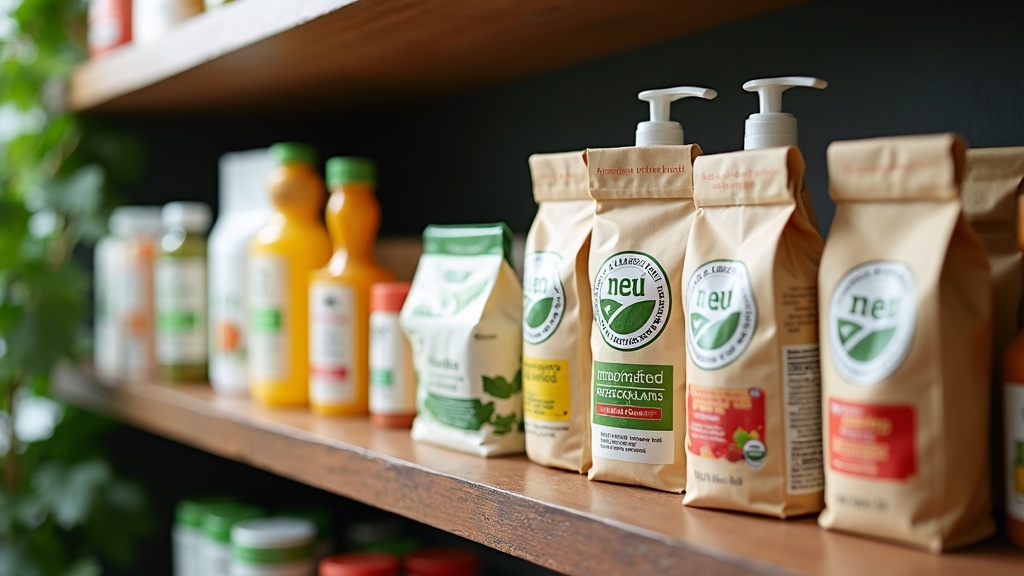Keeping herbal supplements fresh and potent means understanding the basics of proper storage. It may seem like a small detail, but where you stash those herbs can make all the difference in how effective they’ll be when you need them.
The temperature sweet spot sits between 60–77°F, or 15–25°C if you’re on the metric system. Too much heat can wreak havoc on those precious plant compounds, and humidity is just as sneaky, encouraging mold and degradation if left unchecked.
Bathrooms and kitchens might seem convenient for grabbing supplements on-the-go, but they’re bad news for herbs. The fluctuations in temperature and humidity are tough on shelf life and nutritional integrity. And please, never store them in your car! It’s like a sauna in there, gyrating between chilly nights and sunny, cortisol-inducing days.
Moisture is not the friend of herbal supplements. It’s the number one enemy for your herbs’ longevity, pushing them into a fast track to spoilage. Keeping them dry is key to harnessing their full power in your wellness routine.
Grasping these essential aspects of storing your supplements is like setting the groundwork for a long-lasting herbal partnership. So, next time you’re organizing your herbal stash, remember these basics to keep those supplements in tip-top condition.
Light, Air, and Moisture: The Trifecta to Avoid
Herbal supplements have a few sworn enemies: light, air, and moisture. Let’s tackle the sunlight problem first. Direct sunlight is like kryptonite to herbs, especially those with active plant compounds such as curcumin, chlorophyll, and essential oils. Keeping these out of the light keeps their power intact.
When it comes to storing your herbs, the right materials make all the difference. Think about investing in amber or cobalt glass containers. These aren’t just for style points—they actively shield your herbs from harmful UV rays. If the original packaging is UV-protective, stick with that because it’s specifically designed to handle the job.
Tightly sealed containers are a must. Exposure to air can trigger oxidation, making herbs less effective. So, always ensure that the lid is screwed on tight after each use. Ziplock bags might work for sandwiches, but they aren’t going to cut it here, and non-airtight jars are not a great idea either.
A little trick of the trade is using silica gel packets—the ones that say “do not eat.” These tiny packets do wonders for absorbing excess moisture within your jars. Just pop one in there to help ward off unwanted dampness.
Keeping air and moisture in check alongside avoiding sunlight keeps your herbs reliable. The right environment means you’re never caught off guard when you’re ready to use them for their intended health boosts.
Making Container Choices: Pros and Cons Uncovered
Choosing the right container for your herbal supplements isn’t just another trivial detail—it’s a big deal. Containers do more than organize; they’re guardians of freshness and potency.
Glass jars are a classic choice with good reason. They’re non-reactive and airtight, offering solid protection against air and moisture. But if you’ve got clear glass, make sure they’re stashed away from light. Go for amber versions when possible to shield against UV rays.
Then there’s the amber bottles, real MVPs when it comes to blocking harmful light. Just double-check that the caps seal well. A great bottle with a lousy cap is just a headache waiting to happen.
Plastic bottles bring the advantage of being lightweight and affordable. Great for short-term storage, maybe not the best pick for long-term or in those hot spots like sunny windowsills.
And here’s where it gets a little tricky—refrigeration. Some herbs like probiotic blends or liquid extracts thrive in the coolness provided by the fridge. But don’t just shove any herb in there. Unless the label instructs so, keep dried herbs out of the fridge—condensation can play games with their quality.
Stepping up your container game is an investment in the longevity and effectiveness of your herbs. Picking the right one can mean the difference between a supplement that’s ready to perform and one that’s past its best days.
Expiry, Labeling, and Best Practices: Ensuring Optimal Herb Use
Those expiry dates on your herbal supplements aren’t just suggestions—they’re crucial to maintaining the full impact of the herbs. Potency can decline after 1–2 years, especially with powdered forms. Discard any herbs if they smell off, show mold, or have drastically changed in color or texture.
Labeling is a game changer when it comes to staying organized. Whether it’s your own mix or bulk purchases, jot down the name, date of purchase, and batch number, if applicable. It’s like giving yourself future-you a roadmap to herbal happiness.
Embracing the ‘first in, first out’ method ensures you always use older stock first, so nothing expires before its time. It’s a simple strategy to maintain an efficient and effective herbal regimen.
Consider safe storage tips, especially when on the move. Use airtight, travel-sized pill cases or sachets to protect your herbs from sunlight and moisture. A little planning prevents accidental spoilage and ensures you’re never caught without your daily doses.
Paying attention to these little details can make sure your herbs are always at their best when you reach for them. With proper care, those capsules, tinctures, and dried herbs will be dependable partners on your wellness journey.

